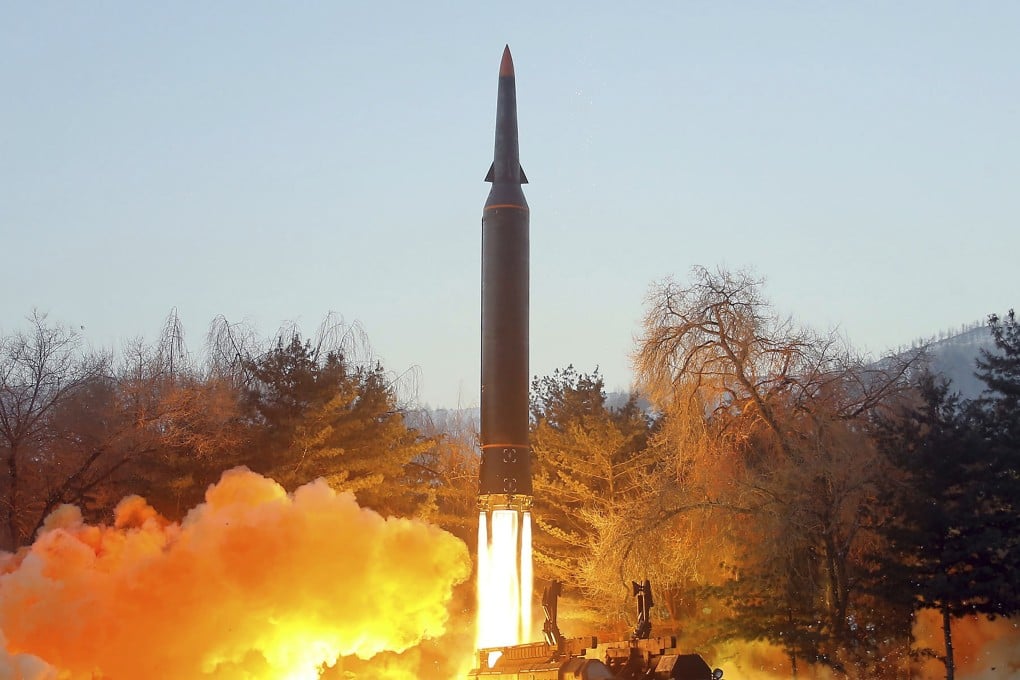North Korea fires ballistic missile days before South’s presidential election
- South Korea’s military said the launch involved a ballistic missile while Japan said the projectile flew a distance of 300km
- The US condemned the firing by Pyongyang which was the ninth this year

The launch was the ninth this year. The last was on Feb. 27 when North Korea said it tested systems for a reconnaissance satellite.
The South Korean military said Saturday’s firing came from a location near Sunan, where Pyongyang’s international airport is located. The airport has been the site of previous tests, including the February 27 launch.
South Korea’s National Security Council (NSC) condemned Pyongyang’s “unprecedented repeated firing of ballistic missiles”, which goes against peace and stability on the Korean peninsula and the international community, according to a statement from the presidential Blue House.
South Korea will “even more closely monitor North Korea’s nuclear and missile-related facilities, such as Yongbyon and Punggye-ri”, and take necessary measures, the NSC said.
